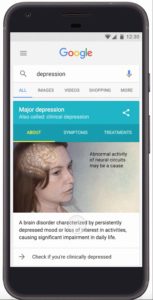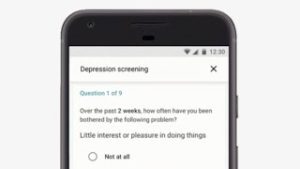 The path to recovery for those facing depression can now begin with a touch of their mobile phone. Internet search giant Google has partnered with the National Alliance on Mental Illness to provide an online questionnaire to help mobile device users know if they are suffering from depression. If you key in anything related to depression on the Google app, you will be presented with a knowledge panel with detailed information on the malady.
The path to recovery for those facing depression can now begin with a touch of their mobile phone. Internet search giant Google has partnered with the National Alliance on Mental Illness to provide an online questionnaire to help mobile device users know if they are suffering from depression. If you key in anything related to depression on the Google app, you will be presented with a knowledge panel with detailed information on the malady.
In addition to this, users in the US will find a link to a nine-question questionnaire that helps them conduct a self-assessment on their mental health. When they click on “check if you’re clinically depressed”, they will be asked to confirm if they have experienced symptoms like loss of concentration or lack of interest in things. These questions are clinically approved as a diagnosis tool for depression.
Google’s new foray into the mental health space is not the first in the tech space. About a decade ago Facebook began making available a number of suicide prevention services on its site. Earlier this year the social networking giant went a step further to infuse artificial intelligence algorithms that are able to detect suicidal tendencies in users’ posts. Using this technology Facebook is able to offer a variety of tools and resources to help individuals undergoing such difficulties. Users, for instance, may be prompted to contact a friend or reach out to a helpline.
In the UK, where the Google update is yet to be launched, the NHS Choices website offers a self-assessment questionnaire similar to the PHQ-9. However, if the Google tool proves successful in the US, it will be availed to users on the other side of the pond.
This update to the Google app is meant to encourage victims of depression to get professional help. A study recently revealed that only half the people living with this disease ever seek treatment. As they answer the questions in the PHQ-9, it is hoped that clinically depressed individuals will be motivated to go and get a full diagnosis.
These online tools are therefore far from the final word on depression or suicidal thoughts. It is important that users go a step further and consult a qualified medical practitioner after getting direction from the questionnaires. The information they get from using the app or website should be the first step to getting help.
According to Mary Giliberti of the National Alliance on Mental Illness, they partnered with Google to create the tool to make “people more aware of depression and seek treatment…” Another mental health expert was quick to emphasize, “An online survey is never a good substitute for seeing your GP or another health professional.”


